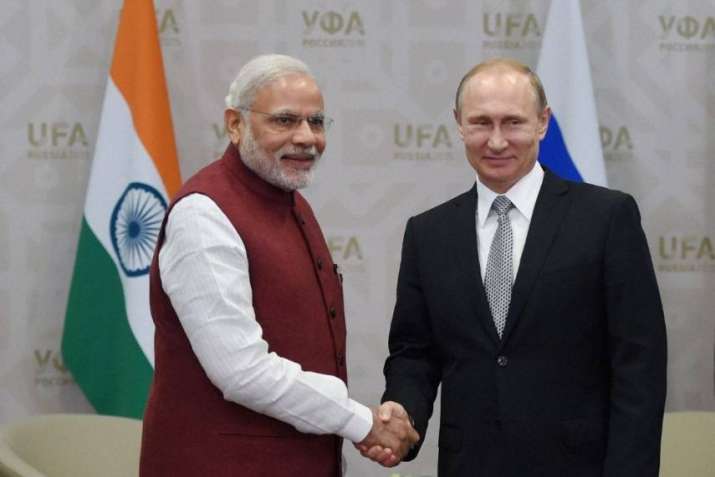As soon as the Russia-Ukraine war broke out, media outlets started raising concerns about problems in the Indo-Russia trade. It was being said that Indian exports could get hindered by the war.
But all such claims stand debunked. Indo-Russia trade is going to continue as normal and in fact, the government is making provisions to ensure that the Russia-Ukraine war doesn’t affect bilateral trade.
Russia- an emerging trade partner for India
Presently, Russia is India’s 25th largest trading partner. During April 2020-March 2021, bilateral trade between the two countries amounted to $8.1 billion, with Indian exports at $2.6 billion and imports from Russia at $5.48 billion.
During the first nine months of the ongoing fiscal year, Indian exports to Russia were worth $2.5 billion, and imports from Russia stood at $6.9 billion.
Now, the bilateral trade figures may not seem all that great. But Russia is a crucial trade partner for India. The two sides have set ambitious goals with a target of taking bilateral trade to $30 billion by 2025. Better trading ties are strategically important for New Delhi and Moscow because they fit in with the time-tested friendship between the two sides.
India imports fuels, mineral oils, pearls, precious or semi-precious stones, nuclear reactors, boilers, machinery and mechanical appliances; electrical machinery and equipment and fertilisers from Russia. On the other hand, Russia imports pharma products, electrical machinery and equipment, organic chemicals and vehicles from India.
As such, neither of the two countries would want their emerging trade ties to suffer.
Sanctions on Russia not to impact India’s exports
Meanwhile, the Commerce Ministry-controlled Federation of Indian Export Organisations (FIEO) has assured 25 export promotion councils coming under its purview to not worry about exports of agricultural, pharmaceutical and petroleum products.
This comes in the backdrop of tight sanctions imposed on Russia by the Office of Foreign Assets Control (OFAC), an enforcement agency under the US Treasury Department.
FIEO has asked its member export promotion councils to convey to the members the guidelines and exemptions mentioned by the OFAC. It has also asked the council to convey the eight general licenses authorising specified transactions. The top leadership of the Commerce Ministry-controlled body stated, “Our exports of agriculture, pharma and petroleum products to Russia will not be subjected to sanctions in view of the above guidelines.”
India exploring rupee payment mechanism
Reuters quoted government and banking sources to claim that India is exploring ways to set up a rupee payment mechanism for trade with Russia. This will soften the impact of Western sanctions imposed on Moscow following the invasion of Ukraine.
This seems to be India’s strategy to bypass the latest move by the US and other Western powers blocking Russian banks’ access to the SWIFT international payment system. SWIFT is the world’s main cross-border payments system and by cutting Russian banks off the system, the West wants to make it difficult for Russians to do business.
Read more: China toes NATO’s line by reducing crude imports from Russia, India fills its shopping cart
As per officials referred to by Reuters, India plans to get Russian banks and companies to open accounts with a few State-run banks in India for trade settlement. So, the two countries will be able to continue trading even if Russian banks and companies are barred from using SWIFT.
Read more: As Biden and company mount an attack on Russia on the Ukraine front, Putin plays his Syria hand
India understands that Russia is being isolated by the US and other Western powers. So, New Delhi is making it clear that it won’t further isolate Moscow. While keeping its deepening relationship with the West intact, India continues to stabilise its trading ties with Russia regardless of what media reports might have to say.
